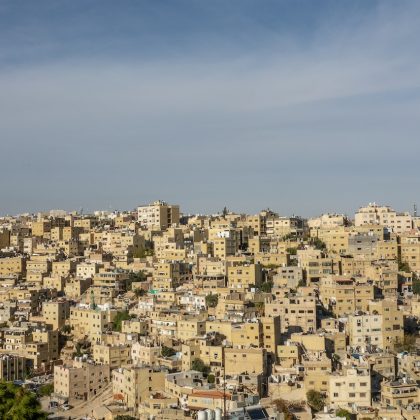ICJ’s Provisional Order of 24 May in South Africa’s Case against Israel: An Example of how not to Couch a Judicial Opinion?
This brief essay would analyse the provisional order by the International Court of Justice (ICJ) issued on 24 May 2024 in South Africa’s application against Israel regarding the alleged violation of the Convention on the Prevention and Punishment of the Crime of Genocide (Genocide Convention) in the Gaza Strip. The case commenced with the filing of an application by South Africa on 29 December 2023. On 26 January 2024 and 28 March 2024, the ICJ issued provisional orders directing Israel to take certain measures and also asked for the hostages, who were abducted on 7 October, be released. In its latest provisional order of 24 May 2024, by thirteen votes to two, the ICJ issued another round of provisional order. This essay only focuses on the ambivalent scope of the Court’s observation on the cessation of the military operation in Rafah.
The Ambivalence
The Court’s pronouncement that Israel “[i]mmediately halt its military offensive, and any other action in the Rafah Governorate, which may inflict on the Palestinian group in Gaza conditions of life that could bring about its physical destruction in whole or in part” [para 57 (a)] is hopelessly (or one might think deliberately and carefully calibrated) ambiguous. Indeed, in his dissenting opinion, Vice-President Sebutinde has categorised this as ‘susceptible to ambiguity’. [para 2] Israel may well argue that what the ICJ has ordered is only to stop the military operation in a way which could engender physical destruction of the Palestinians in Rafah. Thus, it would not be a wrong reading of the order that the Israeli military offensive in Rafah could continue, provided it does not reach such a scale. Judge Tladi’s observation that ‘[t]he reference to “offensive” operations illustrates that legitimate defensive actions, within the strict confines of international law, to repel specific attacks, would be consistent with the Order of the Court” may appear to lend some modicum of support to this line of reading of the order. However, a defensive operation, by its nature, needs to be in response to resist an attack, proportionate, and to dispel the attack to which it is responding. The Israeli military in operation in Rafah may not fulfil these requirements. Any continuous operation to destroy Hamas would thus, unlikely be within the purview of a defensive attack. The following sentence of Judge Tladi’s declaration that ‘[w]hat would not be consistent is the continuation of the offensive military operation in Rafah, and elsewhere’ would seem to imply this.
On the other hand, South Africa could well claim that in its order the Court has expressed its concern regarding the loss of civilian lives in Gaza. Hence, any continuous offensive operation in Gaza would be violating the order of the Court. They may argue that as this is the first time in its pronouncement in this case, the ICJ has passed an order on cessation of military operations, this is a plausible reading of the order.
Any law student would know that texts of statutes can often be contentious and may necessitate interpretative tools to decipher their meaning in a particular fact-specific context. The voluminous literature on the interpretation of legal texts demonstrates this. However, when a judicial opinion is couched in language that can plausibly be interpreted in completely opposite manner, then it is problematic. The corresponding lack of literature on the tools of interpretation of judicial opinion connotes, judicial opinions should interpret facts and law, they should not require further interpretation.
Indeed, as pointed out by the declaration of Juge Aurescu that instead of beating around the bush, arguably, the Court could have seized ‘the opportunity of the present Order to include in its dispositif a measure by which it could have asked Israel to take all necessary and effective measures to implement with immediate effect the Security Council resolution 2728 (2024), including a “lasting sustainable ceasefire”.’ [Para 8] As Judge Aurescu has pointed out this could have served as a good instance of role sharing between two core organs of the United Nations in maintaining international peace and security. This line of reasoning has been assailed by the dissenting opinion of Vice-President Judge Sebutinde, observing that interpreting the order of the majority mandating Israel to halt the military operation would mean that the ICJ was venturing into terrain of laws of war and international human rights law and acts beyond jurisdiction in the particular case. [Paras 2 and 21]. According to her, this would further mean ‘while leaving its enemies, including Hamas, free to attack without Israel being able to respond. This measure also implicitly orders Israel to disregard the safety and security of the more than 100 hostages still held by Hamas, a terrorist organization that has refused to release them unconditionally.’ [para 21] While the first of her reasoning appears to be persuasive, it would appear the second observation is problematic. Firstly, nothing in the order impinges on Israel’s right to defend its citizens or the safety of hostages. Secondly, indeed, it may be plausible to argue that by characterising Hamas as a terrorist organisation Judge Sebutinde herself was moving beyond the jurisdiction of the Court in the case, as the characterization of Hamas was not an issue before the ICJ.
One may say that the ICJ has tried to stay away from political considerations. However, one has to remember that the ICJ is a body that deals with actors who are political beings and no matter what it does, often its judgments would have political ramifications. And in any case, an exercise in ambivalence, by choice or chance, maybe the prerogative of an academic legal exercise but should never ever be an option for a court.

Md. Rizwanul Islam is a Professor of Law, and Member, Center for Peace Studies, North South University, Bangladesh. He acknowledges the comments of Farhaan Ahmed and Sayere Nazabi Sayem, on a draft version of this essay.
Read more about this and related topics in the Asian Journal of International Law.






